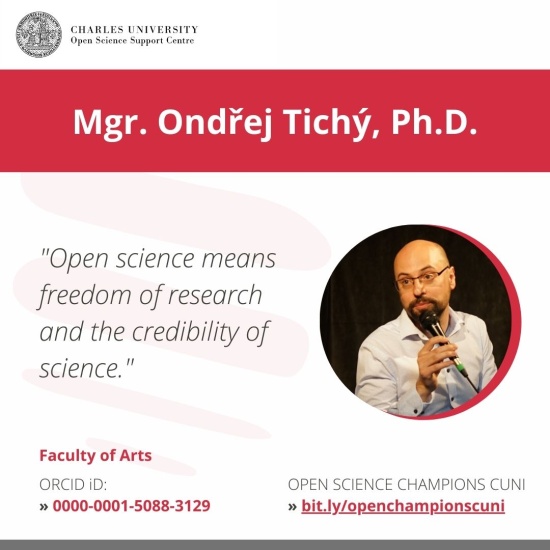Because I often need either large data files or facsimiles or editions of old texts for my research, I sometimes find myself in a situation where I can’t access these resources. Of course, almost all researchers have this problem, but researchers from poorer countries and institutions have more of a disadvantage than others. Therefore, I try to make the data I help create available to the widest possible group of users, and I think that the situation is gradually improving in this regard. On the one hand, there is an increasing awareness of open science and the feeling that practising open science is simply the right thing to do. On the other hand, this approach is promoted, for example, by grant agencies.
On the one hand, I very often draw on open sources, such as the digitization project Early English Books Online and a wide range of language corpora or various projects for digitizing old manuscripts. Currently, I am working on the digitization of an Anglo-Saxon Dictionary online (bosworthtoller.com) and on creating the Lexico-Semantic Database of Czech. Both resources will be accessible and open to use for as many people as possible.
Beside the fact that open access principles help balance out the opportunities and disadvantages of researchers from poorer countries and institutions, data sharing helps make research more scientific. By this, I mean that scientific research should be replicable, among other things. This has proven to be a serious problem in the social sciences and humanities in recent years. Open data and reliably described methodologies are one of the ways to successfully address this problem and at the same time increase the credibility of the disciplines concerned.
Don’t be afraid that your future research will suffer by sharing your data. Of course, it is possible that someone will use your data for research that you could have thought of in the future. But what is better than when the effort put into creating or acquiring data bears more fruit? You will also certainly use or already do use data created by someone else. We all stand on the shoulders of giants.
Concerns, mutual mistrust, but also legislative restrictions associated with licensing and copyrights. I am not in favour of abolishing intellectual property rights, but for research purposes that do not threaten the rights of other authors, it should be possible and easy to obtain virtually any data, especially if their collection or creation was publicly funded.
Open science means freedom of research and the credibility of science.

Residency, Invoicing and Correspondence Address
Charles University
Central Library
Ovocný trh 560/5
116 36 Prague 1
Czech Republic
Office Address
José Martího 2 (2nd floor)
160 00 Prague 6
Phone: +420 224 491 839, 172
E-mail: openscience@cuni.cz
Www: openscience.cuni.cz